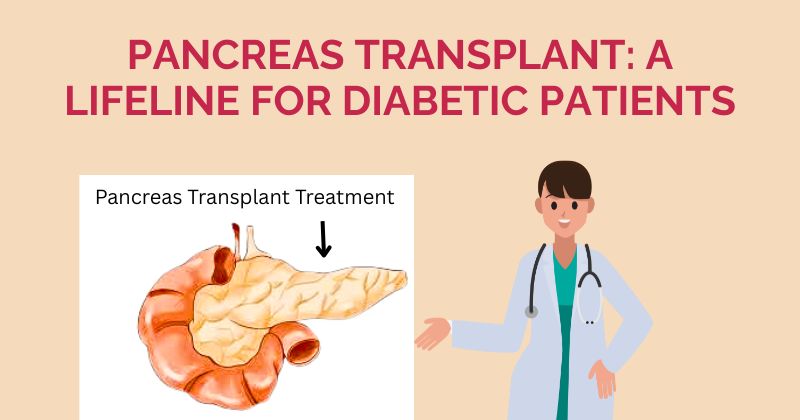


In this process, a new pancreas is transferred from a healthy donor to the patient…
Diabetes, particularly Type 1 diabetes, can be a relentless condition that affects millions of people worldwide. While insulin therapy and lifestyle modifications help many manage the disease, some patients experience severe complications or struggle with unstable blood sugar levels despite optimal medical care. For these individuals, a pancreas transplant can be a transformative and potentially life-saving option.
A pancreas transplant is a surgical procedure where a healthy pancreas from a deceased donor is implanted into a person whose pancreas no longer functions adequately. With a high pancreas transplant success rate, many patients experience a dramatic transformation in their health and independence. The procedure aims to restore normal insulin production and, ideally, eliminate the need for insulin injections. It’s primarily recommended for Type 1 diabetics who have advanced complications, such as kidney failure or severe episodes of low blood sugar (hypoglycemia) that can’t be controlled by other means.
There are several types of pancreas transplants:
Not all diabetic patients are suitable candidates for pancreas transplantation. Eligibility depends on factors such as age, overall health, kidney function, and the presence of other complications. Typically, candidates are under 55 years old, have Type 1 diabetes, and demonstrate severe blood sugar instability or end-stage renal disease.
The most significant benefit is the potential for insulin independence. Patients who undergo a successful transplant often no longer need insulin injections and experience normalized blood sugar levels. This can lead to:
As with any major surgery, pancreatic transplantation comes with risks. These include:
Patients must take lifelong immunosuppressants to prevent organ rejection, which can increase susceptibility to infections and other conditions.
Over the past few decades, medical advances have significantly improved the pancreas transplant success rate. Today, approximately 85–90% of pancreas transplants are successful one year post-surgery. The success rate depends on several factors, including the type of transplant, the experience of the transplant center, and the patient’s overall health and adherence to medical recommendations.
For SPK transplants, survival rates are especially promising. According to transplant registries, the 5-year graft survival rate for SPK procedures is around 70–80%, meaning a high percentage of patients continue to live with a functioning pancreas years after surgery.
One of the key considerations for potential recipients is the pancreas transplant cost. The procedure is complex and involves several components: pre-transplant evaluation, surgery, hospitalization, and lifelong medication. In the United States, the pancreas transplant cost can range between $250,000 and $300,000. This includes the cost of the surgery itself, inpatient care, and follow-up treatment.
For patients undergoing a simultaneous kidney-pancreas transplant, costs may be higher due to the dual organ procedure. Additionally, the cost of immunosuppressive drugs, which are essential to prevent organ rejection, can amount to several thousand dollars per year for life.
Recovery from a pancreas transplant takes time. Most patients spend a few weeks in the hospital, followed by months of close medical monitoring. Once stable, recipients must follow a strict regimen that includes:
Patients often report dramatic improvements in energy, mental clarity, and emotional well-being.
For diabetic patients who struggle with severe complications or who no longer respond well to traditional treatments, a pancreas transplant can offer a new lease of life. Although not without risks, the procedure has shown excellent outcomes over the years. However, it’s also important to weigh the pancreas transplant cost, the lifelong commitment to medication, and potential side effects. Consulting with a specialized transplant team is the first step toward understanding whether this life-changing procedure is the right path forward.
For More:- (Click Here)
